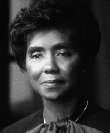Consuelo Bland Marshall facts for kids
Quick facts for kids
Consuelo Bland Marshall
|
|
|---|---|
 |
|
| Senior Judge of the United States District Court for the Central District of California | |
| Assumed office October 24, 2005 |
|
| Chief Judge of the United States District Court for the Central District of California | |
| In office 2001–2005 |
|
| Preceded by | Terry J. Hatter Jr. |
| Succeeded by | Alicemarie Huber Stotler |
| Judge of the United States District Court for the Central District of California | |
| In office September 30, 1980 – October 24, 2005 |
|
| Appointed by | Jimmy Carter |
| Preceded by | Robert Firth |
| Succeeded by | Valerie Baker Fairbank |
| Judge for the Criminal Division of the Los Angeles County Superior Court | |
| In office 1977–1980 |
|
| Judge for the Civil and Criminal Division of the Inglewood Municipal Court | |
| In office 1976–1977 |
|
| Commissioner of the Juvenile Court of the Los Angeles County Superior Court | |
| In office 1971–1976 |
|
| Personal details | |
| Born |
Consuelo Bland Arnold
September 28, 1936 Knoxville, Tennessee, U.S. |
| Spouse | George E. Marshall |
| Children | Laurie Grindle |
| Education | Los Angeles City College (AA) Howard University (BA, LLB) |
Consuelo Bland Marshall, born on September 28, 1936, is a very experienced judge. She serves as a senior United States district judge. She works for the United States District Court for the Central District of California.
Contents
Judge Consuelo Marshall's Early Life and Education
Consuelo Marshall was born in Knoxville, Tennessee. She started her college education at Los Angeles City College. There, she earned an Associate of Arts degree in 1956. She then went to Howard University, where she received a Bachelor of Arts degree in 1958. She continued her studies at Howard University School of Law. In 1961, she earned her law degree, a Bachelor of Laws.
Consuelo Marshall's Legal Career Before Becoming a Judge
After finishing law school, Consuelo Marshall began her career in law. From 1962 to 1967, she worked as a deputy city attorney. She served in the Los Angeles City Attorney's Office. Later, from 1968 to 1970, she worked as a private lawyer. Her private practice was in Los Angeles, California.
Consuelo Marshall's First Roles as a Judge
Consuelo Marshall started her journey as a judge in 1971. She became a Commissioner of the Juvenile Court. This was part of the Los Angeles County Superior Court. She held this position until 1976. From 1976 to 1977, she served as a judge. She worked in the Civil and Criminal Division of the Inglewood Municipal Court. This court was in Inglewood, California. Then, from 1977 to 1980, she was a judge in the Criminal Division. This role was at the Los Angeles County Superior Court.
Consuelo Marshall's Federal Judicial Service
President Jimmy Carter chose Consuelo Marshall for a special role. On June 20, 1980, he nominated her to be a federal judge. She was to serve on the United States District Court for the Central District of California. The United States Senate approved her nomination. This happened on September 29, 1980. She officially became a judge on September 30, 1980.
Consuelo Marshall's Leadership as Chief Judge
Judge Marshall took on a leadership role in 2001. She became the Chief Judge of her court. She served as Chief Judge until 2005. After that, on October 24, 2005, she took on senior status. This means she continues to serve as a judge but with a reduced caseload.
Important Court Cases and Decisions
Judge Marshall made an important decision in a case called Preferred Communications Inc. v. City of Los Angeles. This case was about a cable television company. The company wanted to use public utility lines in South Central Los Angeles.
How Higher Courts Reviewed the Case
The United States Court of Appeals for the Ninth Circuit looked at Judge Marshall's decision. Later, the U.S. Supreme Court also reviewed it. Both higher courts found that the City of Los Angeles had violated the First Amendment. This part of the U.S. Constitution protects freedom of speech. The city had prevented the company from using the public lines.
The Ninth Circuit Court said that the city's actions affected the company's First Amendment rights. The U.S. Supreme Court agreed. They stated that the company's request involved important First Amendment interests. They said the case should not have been dismissed.
Timeline of the Case
- 1983: The case was first filed in the district court.
- 1985: The United States Court of Appeals for the Ninth Circuit overturned Judge Marshall's decision.
- 1986: The Supreme Court of the United States also reversed Judge Marshall's ruling. They agreed with the Ninth Circuit.
- 1992: Judge Marshall issued her final ruling in the case.
The Supreme Court's Chief Justice, William Rehnquist, believed the City of Los Angeles should have allowed the company to use its lines. This was to help with free speech. The company, however, faced many delays. They were not able to have a jury trial to decide damages for about ten years. These delays caused difficulties for the company. They also never had a public hearing to argue for their First Amendment rights.
See also
- List of African-American federal judges
- List of African-American jurists
- List of first women lawyers and judges in California
- List of United States federal judges by longevity of service
 | John T. Biggers |
 | Thomas Blackshear |
 | Mark Bradford |
 | Beverly Buchanan |

